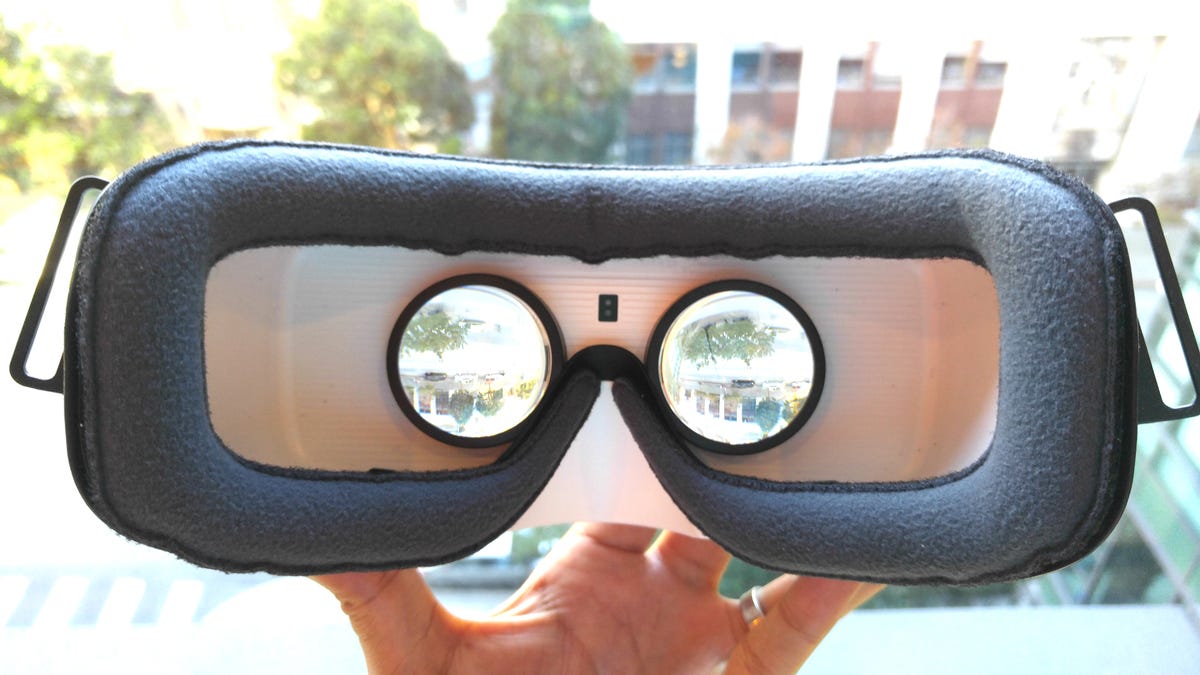Unity CEO: Maybe 2016 isn't really the 'year of VR'
No one's created the killer app for virtual reality yet, says John Riccitiello at Samsung's developer conference.

If you listen to Samsung, Facebook and pretty much everyone else interested in virtual reality, 2016 is the year the tech really takes off.
But that may not be true, at least according to John Riccitiello, CEO of Unity, a company that provides tools that help developers make apps and games like Superhot and Homeworld: Deserts of Kharak. He believes the "industry growth is going to start slow" but eventually become bigger than many experts predict.
"2016 is a duct tape...year," he said Thursday during an "inspiration keynote" at Samsung's developer conference in San Francisco. Riccitiello predicted we'll say at the end of the year that VR and augmented reality -- which overlays virtual items on top of the real world -- are "fizzling."
"We've set up so much hype," he said. "The gap of disappointment will be real in 2016 and 2017."
John Riccitiello, CEO of Unity, thinks VR will start slow but ultimately be as life changing as TV and radio.
One of the companies hyping VR the most is Samsung. The company this week is hosting a developer conference at the Moscone Center in downtown San Francisco, the same place where Apple will hold its developer confab in June. One big reason for the conference is to get people to make software for its $99 Gear VR headset that's powered by a high-end Samsung smartphone.
VR hype
No one's quite sure how popular VR will be. Consulting firm Analysis Group in February estimated that through 2020, the revenue generated worldwide from virtual reality and augmented reality will total somewhere between $2.8 billion and $126 billion. That's not a typo. The huge range suggests that no one really knows what will happen with this technology.
But many companies are making big bets on VR. Almost every major tech company, including Samsung, HTC, Facebook's Oculus, Google and Sony, has already launched a VR headset or is working on one. Even Apple CEO Tim Cook said virtual reality is "really cool."
Right now, two things are working against VR and AR becoming mainstream, Riccitiello said. VR headsets and the pricey computers you need to run them cost too much, and there's not enough content to make the devices must-have.
"While I believe a lot of folks are working on the next killer app, that app is not there" yet, he added.
But Riccitiello also believes VR and AR will ultimately be much bigger than analysts expect. He compared it to radio and television in how it will grow -- starting slow and finishing "very, very strong" -- and in how it will change the way we live.
"It's a once-in-a-generation technology that's so compelling it literally changes everything," Riccitiello said.
He also predicted VR will go way beyond gaming, and we'll be creating new worlds that let us live in a "metaverse and the oasis." And Riccitiello said that VR content will be created from within VR instead of with a standard mouse and keyboard. "You will literally enter the matrix to create content," he said.
"VR is here," Riccitiello said to the crowd of about 4,000 developers. "It's real and we're waiting for folks like you to innovate."

